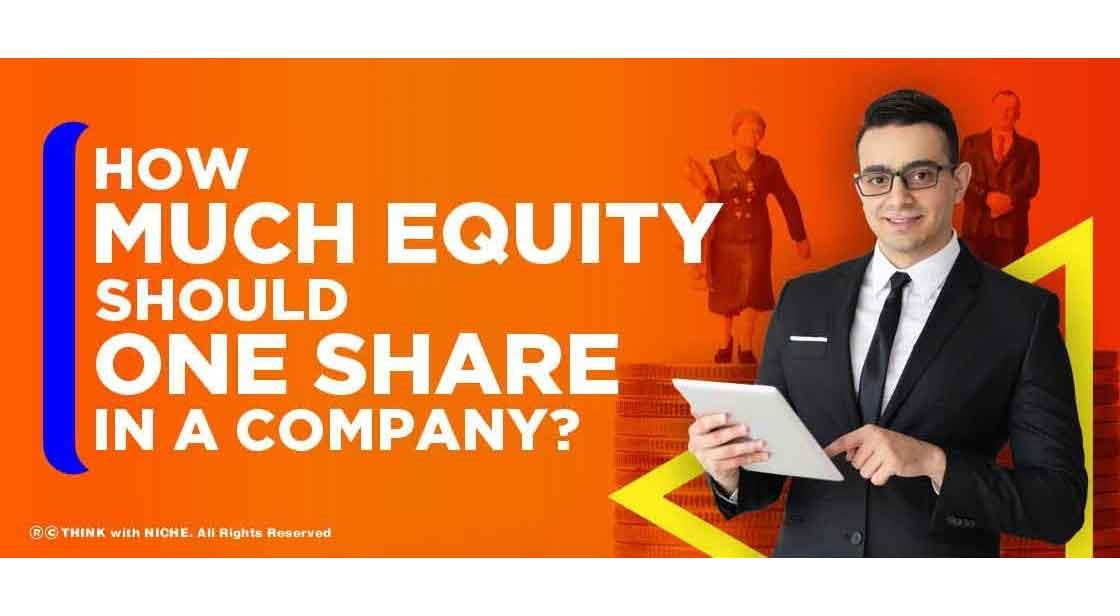How Much Equity Should One Share in a Company?

Blog Post
When it comes to investing in a company, it is important to be aware of the risks and to choose the right option for the right reasons. There are different ways to invest in a company, and depending on the size and complexity of the company, it can be difficult to determine which route will lead to the best returns. However, it is important to remember that an investment in a company is not an easy decision - it can be risky, but it can also be rewarding. #TWN
As you may already know, equity is a portion of ownership in a company. When you buy stock in a company, you are buying into the company’s business by purchasing equity. When you own equity, it can help you to make more money when the company does well and increases in value. It can also help to protect your investment if something goes wrong with the company. However, when it comes to how much one should invest into a business and what kind of return they will receive on their investment, this is where most people get stuck. There are multiple ways that each percentage of ownership could earn them different amounts of money. This article offers some insight into what those percentages might be and the types of returns that different investments might bring in.
Different Ways to Invest in Equity
Equity is the portion of ownership in a company that you buy. It can be bought for several reasons, including to make more money or to protect your investment. When deciding how much you should invest in a company, multiple factors come into play. For one thing, each percentage of ownership will earn different returns on investments. Some people think they should invest a set amount of money and let their investment grow over time. However, this is not always the case because there are many ways to generate income with different investments. Some investors might also choose to buy shares to get a piece of the action if the company does well and does well enough for them to sell it later for a good return on their investment. This is possible because shares will increase in value as companies do well and reach milestones that help push up their stock price. A person might also choose to buy shares when the market begins an upward trend (when stocks rise) because, at that point, it is easier for companies to grow and reach higher stock prices than it would be if the market was flat or downward moving (when stocks fall). With these types of trends, an investor can easily sell their shares for even more money than they originally paid for them by waiting until everyone else takes notice and bids up the share price even further before selling at peak time.
Who Should Invest In A Company?
When it comes to deciding whether or not you should invest in a company, different factors go into the decision. According to the article, one factor would be how much risk you want to take on. If you don't want to take on too much risk, you might be better off with a lower percentage of ownership. You could also consider whether or not you have time and expertise to manage the company yourself. If you don't have time and expertise, then it might make sense for someone else to buy equity in your company because they can use their expertise instead of yours. Another factor that would come into play would be if the company is publicly traded or privately held. The article states that "private companies typically offer less liquidity than public companies." It means that private companies are typically more risky investments. However, this doesn’t mean that private companies can’t work out well with a little bit of planning and researching beforehand. It's important to do some homework before investing in any company to avoid being scammed later on down the road.
How Much Money Can One Earn with an Investment?
If you are looking to invest in a company, it is important to know what percentage of ownership you will be able to earn with your investment. This article offers what different percentages of investment might earn you at different levels of investment and how much money those percentages could bring in. Starting at the lowest level, one-tenth of a percent (0.1%) will allow you to share in $100 per year or $10,000 in total earnings over 10 years. If you were to invest more than the 10% level, however, an annual return on investment of 9% might be possible. With this level of ownership, your annual earnings would be $9,000 over 20 years. For example, if you invested $10,000 into a company that pays an 8% annual return on investments (8% APR), you would receive around $200 per year or $20,000 total over 20 years.
The highest level of investments is achieved with 100%. With this type of investment, yearly earnings would reach up to $1 million, and your total earnings would reach over ten million dollars over 10 years. In other words, for every one dollar invested into a company with 100% equity ownership rights one million dollars can be earned in total over 10 years.
Return of an Investment for a One Percent Share of Ownership
The return of an investment for a one percent share of ownership will vary depending on what the company is. It can be because the company has different assets or because it is indifferent stages in its business life cycle. For instance, Microsoft stock was trading at $45.31 per share when this article was written, which means that if you bought 100 shares at that valuation, you would have invested $4,530 into the company. It could be a good investment to make as it would mean you are investing $4,530 into the company and expecting a $45.31 return on your investment. It is just important to note that there is always a risk with an investment like this and that your returns may not be as high as expected.
Return of an Investment for a Two Percent Share
Most investors who purchase shares of a company are likely to buy at least two percent. A two percent share is equal to 40 shares, and if the company does well, you might receive a return on your investment of eight percent per year. If you have invested in a company that pays dividends, you can expect that you will get paid every quarter and then reinvest the money back into the company. You will receive dividends from your profits, which are usually set at 20-30 percent of the total earnings. The price for an equity share fluctuates according to the market and how well it is doing but typically ranges from $0.50-$1.00 per share with most companies selling for around $10-$20 per share.
Risks Of Investing in a Company
Some risks come along with investing in a company. For example, the risk of a company going bankrupt is always there. If you invest $100 into this company, and if it goes bankrupt, then you only get back what you put in. Additionally, if your company does well, but the stock price never goes up as much as you would have liked it to go up, then you might not make as much money as you were expecting. Another risk is the risk of making the wrong investment decision. Every investment has different returns and different risks involved with them, so it's important to research before investing in a business or a stock for yourself to be able to feel confident about your decision moving forward.
Conclusion
In the end, it is up to you to decide what percentage of equity you want to invest into a company. However, if you are going to invest in a company that makes something important for your business, it might be worth investing more than just your savings into the business. It can give you more opportunities for profit and security.
If you liked reading this article, we have two more for you on a similar theme. Click on the link below to explore!

How to Attract Investors for Your Business

Want to Invest in Toast IPO?
You May Like
EDITOR’S CHOICE












